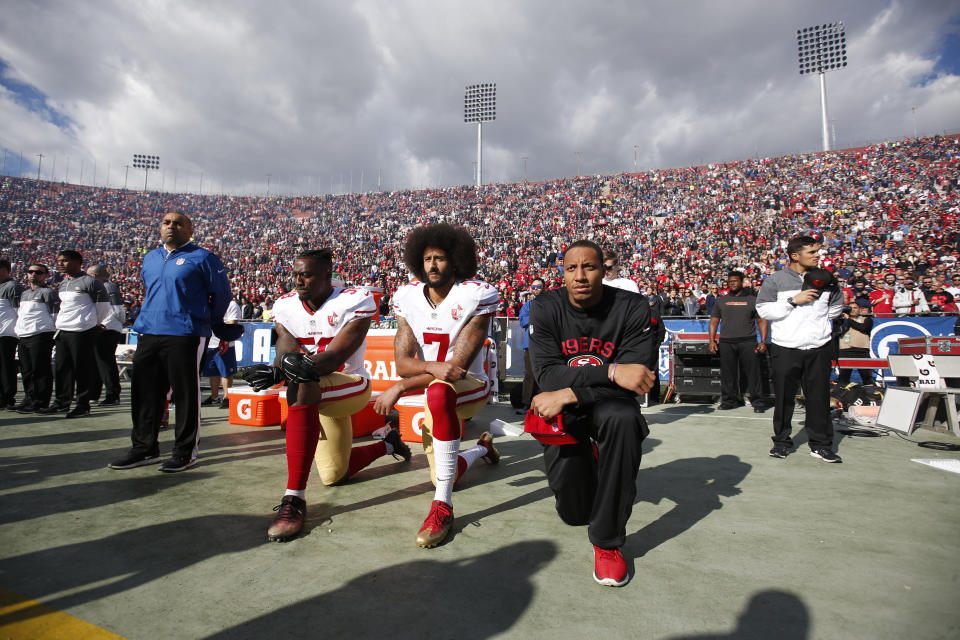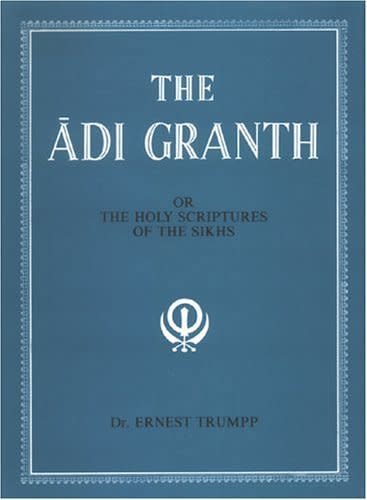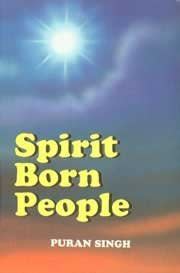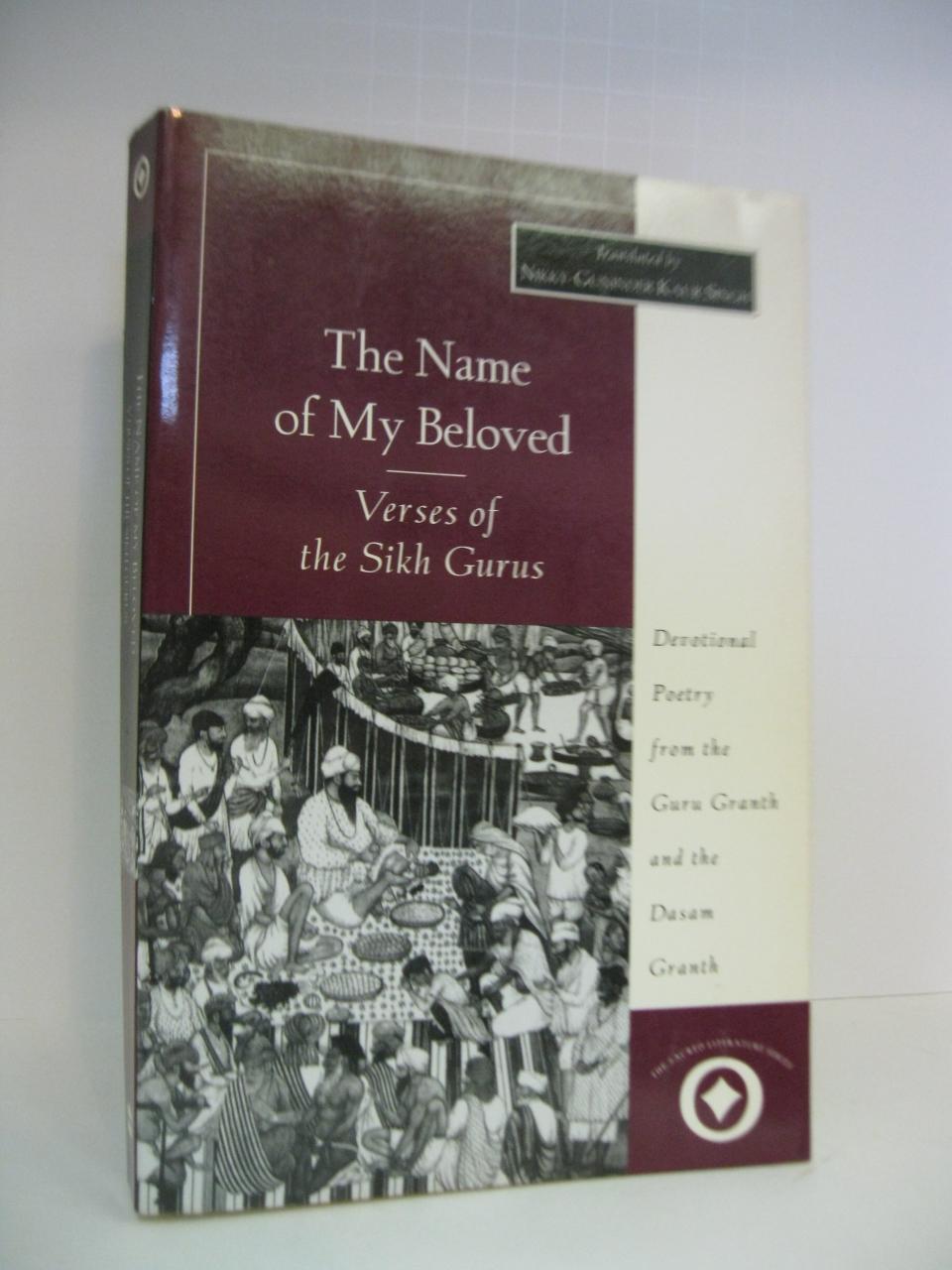Sikh Marathon Runners Honor Colin Kaepernick During Race
Completing the New York City Marathon is an accomplishment in and of itself. But two Sikh runners at this year’s race decided to dedicate this personal milestone to a bigger cause ― raising awareness about the fight for racial justice.
Simran Jeet Singh, a professor of religion at Trinity University, and Jasdeep Singh, a physician from New York City, participated in the race on Sunday wearing t-shirts that paid homage to Colin Kaepernick, the former NFL quarterback whose #TakeAKnee protest movement has sparked conversations about police brutality towards black Americans.
Simran said that he and Jasdeep were captivated by the “clarity and poise” that Kaepernick has brought to the issue, and wanted to honor the movement that the athlete has started.
“I am committed to fighting anti-Black racism because my Sikh faith teaches me to confront any injustice I encounter in this world,” Simran told HuffPost in an email. “It is not an option to ignore the deep oppression that our Black sisters and brothers experience in America, and each of us has a responsibility to help ensure that we realize real equity in this country.”
Sunday’s race was Simran’s sixth marathon, and his fifth time running the New York City marathon. In the past, Simran said that he often received racist comments while running the race. Last year, he heard people calling him a “dirty Muslim” or “that guy from ISIS” during the race. He said the 2017 race was the first time he’s run the New York City Marathon without receiving a single racist comment.
Although Sikhs have been part of American society since the late 1800s, they have long been the targets of xenophobia and racism. Many Americans are unfamiliar with the religion, or mistakenly identify Sikhs as Muslims. Since the September 11 attacks, Sikh Americans have been the targets of racial profiling, bullying, and hate crimes.
Simran said that he and Jasdeep, who ran his first marathon this year, often found themselves discussing social and political issues while training for the race.
“We talked about how maintaining our Sikh identities in the world’s biggest race was a political statement in and of itself ― but we also talked about how we wanted to do something more explicit and more timely.”

Kaepernick’s protest movement began in 2016 as a way to highlight police killings of unarmed black Americans. Despite pushback from some owners of NFL teams, a number of athletes have followed in Kaepernick’s footsteps this year by kneeling while the U.S. national anthem is being sung before football games.
The movement has also found supporters outside the world of professional football ― from a congresswoman on the House floor to the cast of Broadway’s “Miss Saigon.”
Simran said that he believes speaking out for black lives is simply the right thing to do. But beyond that, he said that there is also strategic value in forming alliances between black Americans and South Asian communities.
This alliance is something the scholar said he hopes to see more of in the future.
“Anti-Black racism is ... a worldview fueled by white supremacy that was exported through European colonialism,” he said. “Anti-Black racism permeates South Asian culture as much as any other, and this pernicious bias keeps us from identifying and standing with our Black sisters and brothers to the extent that we really should. It’s a problem South Asians don’t discuss openly or often enough, and it’s a problem we need to address with real urgency.”
Because of the history of bigotry that South Asians and Sikhs have faced in the country, Simran said that it is important to work together towards equality.
“The first anti-Sikh race riots took place in Bellingham, Washington in 1907, and South Asians and Sikhs have been dealing with bigotry ever since,” he said. “I believe it’s critically important that we address hate at its core, and we can’t do that until we recognize that the plight of racism is a shared plight and that we’re all in this together. ”
Also on HuffPost
Love HuffPost? Become a founding member of HuffPost Plus today.
Adi Granth or Guru Granth Sahib

The Sikhs

Lost In History: 1984 Reconstructed

Jasmin's Summer Wish

Garland Around My Neck
![<i><a href="http://www.amazon.com/Garland-Around-My-Neck-Pingalwara/dp/8174763376/ref=sr_1_1?s=books&ie=UTF8&qid=1443553666&sr=1-1&keywords=garland+around+my+neck">Garland Around My Neck</a></i> by Patwant Singh and Harinder Kaur Sekhon tells the story of remarkable humanitarian Puran Singh. The book "emphasizes his work with the disabled, destitute, and lower sections of society in the Amritsar area," and provides an "excellent [resource] on Sikh service and philanthropy," <a href="http://www.amazon.com/Garland-Around-My-Neck-Pingalwara/dp/8174763376/ref=sr_1_1?s=books&ie=UTF8&qid=1443553666&sr=1-1&keywords=garland+around+my+neck">according to Amazon</a>.](https://s.yimg.com/ny/api/res/1.2/d4dlPAF3TfUlP6DoCFM3aQ--/YXBwaWQ9aGlnaGxhbmRlcjt3PTk2MA--/https://img.huffingtonpost.com/asset/560ae1dc18000052008313ac.jpg)
Spirit Born People

The World According To Sikhi

The Name Of My Beloved

Making Ethnic Choices: California's Punjabi Mexican Americans
![<i><a href="http://www.amazon.com/Making-Ethnic-Choices-Californias-Americans/dp/1566392020/ref=sr_1_1?s=books&ie=UTF8&qid=1443554879&sr=1-1&keywords=making+ethnic+choices">Making Ethnic Choices</a> </i>by Karen Leonard explores the hardships faced by early Sikh and Punjabi migrants to the United States at the turn of the 20th century. <a href="http://www.amazon.com/Making-Ethnic-Choices-Californias-Americans/dp/1566392020/ref=sr_1_1?s=books&ie=UTF8&qid=1443554879&sr=1-1&keywords=making+ethnic+choices">Amazon writes</a>: "Using written sources and numerous interviews, [Leonard] invokes gender, generation, class, religion, language, and the dramatic political changes of the 1940s in South Asia and the United States to show how individual and group perceptions of ethnic identity have changed among Punjabi Mexican Americans in rural California."](https://s.yimg.com/ny/api/res/1.2/w5I.tk0_CgxUE1dtUXIY3g--/YXBwaWQ9aGlnaGxhbmRlcjt3PTk2MA--/https://img.huffingtonpost.com/asset/560ae6741800002a008313b9.jpg)
A History Of The Sikhs

This article originally appeared on HuffPost.

